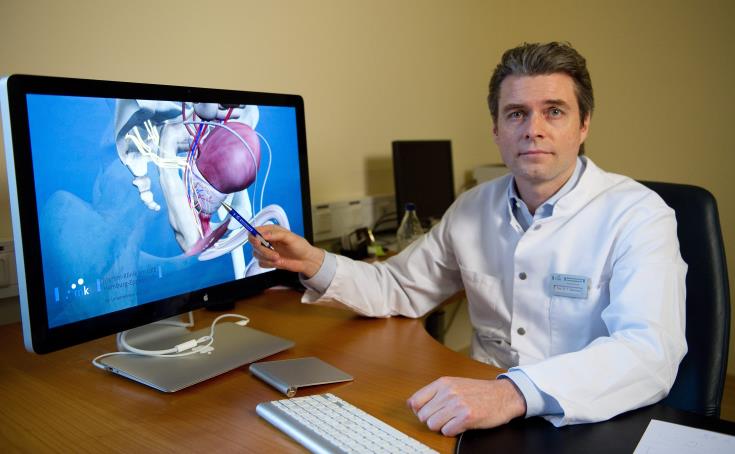Prostate cancer in Cyprus is the first most common cancer in men, with 456 cases in men aged 65-74 in 2018, according to PASYKAF, which through its program for male cancer, continues its action, informing about the prevention and early diagnosis of prostate and testicular cancer.
Announcement of PASYKAF states that it is available to the public for the provision of information material and organization of online lectures or live, observing all measures against Covid-19.
Prostate cancer in Cyprus is the first most common cancer in men and according to the latest data from the Health Monitoring Unit of the Cancer Archive of the Ministry of Health in 2018, 456 cases were recorded in men aged 65 to 74 years. It is a disease that develops slowly and many men diagnosed with this type of cancer live for many years without symptoms and without it spreading and becoming life threatening.
The diagnosis, it is reported, is made with the annual preventive examination that includes the blood test to measure the amount of Special Prostate Antigen in the blood (PSA) and the finger examination. The test is recommended by experts as starting at the age of 50, unless there is a family history (first-degree person with prostate cancer experience) where men should undergo diagnostic tests from the age of 40-45.
The main symptoms of prostate cancer are problems with urination such as slow or weak urine flow, frequent urination or nocturia, blood in the urine or semen, pain in the lower back, thighs, hips and chest, weakness or numbness in the legs and loss of control of the bladder or bowel.
Risk factors that increase the chances of prostate cancer are old age, family history, diet rich in animal fats and dairy products as well as high blood testosterone levels. Testicular cancer is rare, but can occur in boys and men, usually 15-44 years old. The main symptoms are painless swelling, discomfort or numbness, a small palpable lump the size of a grain of rice or a pea, sudden collection of fluid in the scrotum, tenderness or pain in the breasts.
For the best control of the testicles, it is recommended that a self-examination be performed in the area, once a month. The best time for self-examination is after a hot shower, when the skin of the scrotum is looser and the testicles can be felt more easily. THE
The general recommendations for the prevention and reduction of the chances of prostate and testicular cancer are the adoption of the "European Cancer Code" which includes the avoidance of smoking, a healthy diet, physical activity and the maintenance of a normal body weight.
For more information on the prevention and early diagnosis of cancer you can visit the PASYKAF website at www.pasykaf.org.
(KYPE / AHR / GBA)
